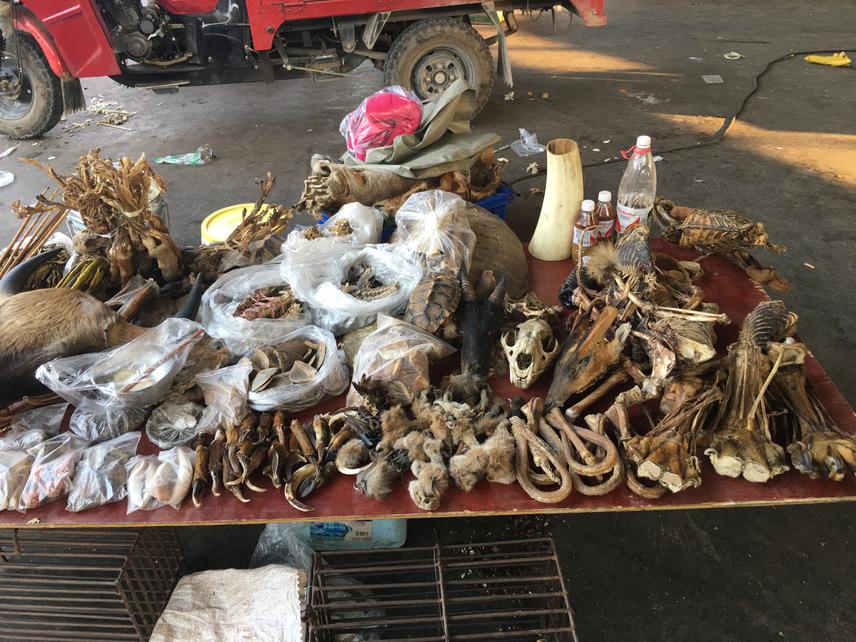Sapai Min
Other projects
24 Oct 2014
Assessment of the Impacts of Wildlife Trade in Relation to Conservation in Mong-La City, East Shan State, Myanmar (China Border City)
30 Mar 2016
Investigation of Wildlife Trade in Myanmar-Thailand Border Cities under Growing Trans-Boundary Economic Trade
16 Dec 2020
Local People-Based Approaches to Investigate and Address Wildlife Trade and Consumption in Tanintharyi Region, the Southern Part of Myanmar
Project aims:
- To evaluate the status of wildlife consumption in Myanmar
- To help inform government and non-government organization strategies for reforming the currently unregulated wildlife (bushmeat) market and
- To improve controls of illegal wildlife trafficking

Wildlife parts. ©SPM.
A survey of wildlife consumption levels and conservation awareness rates will be conducted over one year in three cities; Yangon, Mandalay and Tachileik will be chosen as the study sites. Yangon (16°51′N 96°11′E) is the former capital of Myanmar and the country's main center for infrastructure development apart from trade, industry, entertainment and tourism. Mandalay (21°58′30″ N 96°5′ 0″E) is the second-largest city, the economic centre of Upper Myanmar, and the major trading and communications center for northern and central Myanmar. Much of Burmese external trade to China and India goes through Mandalay. Tachilek (20°27′N 99°53′E) is located in eastern Shan State and serves as Myanmar’s main border crossing to northern Thailand.
The study will use a structured questionnaire and face-to-face interviews for at least 60 local people from each city. In the survey, four types of consumer behavior will address to the questionnaire:
(1) Using wild animals as food,
(2) Using medicine or tonic products containing wildlife ingredients,
(3) Wearing ornaments and garments made from wildlife,
(4) Keeping wildlife as pets. Attitude to wildlife will be included.
Sites will be visited every month by rotation. Each visits will last a week, a total of seven times per year will be undertaken for each cities. Selected interviewees are not being worked or have worked for a conservation group, a market research institute, a market researched department of a corporation, or an advertisement design company, so that will be secured the respondents from the survey can present general public’s opinion without additional influences by certain group of expertise. Finally, will inform all results and information to relevant law enforcement agencies for crime control and awareness raising.